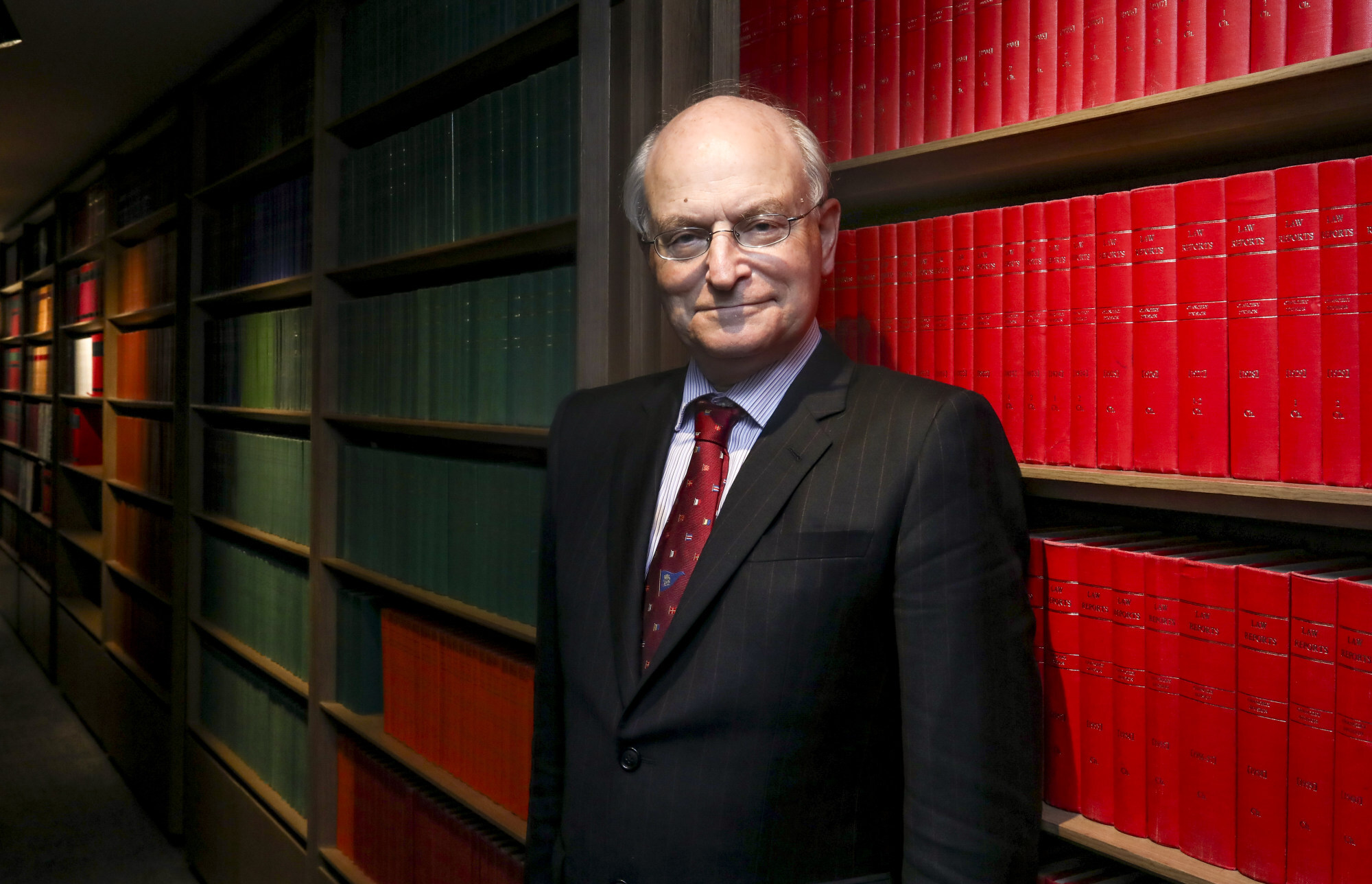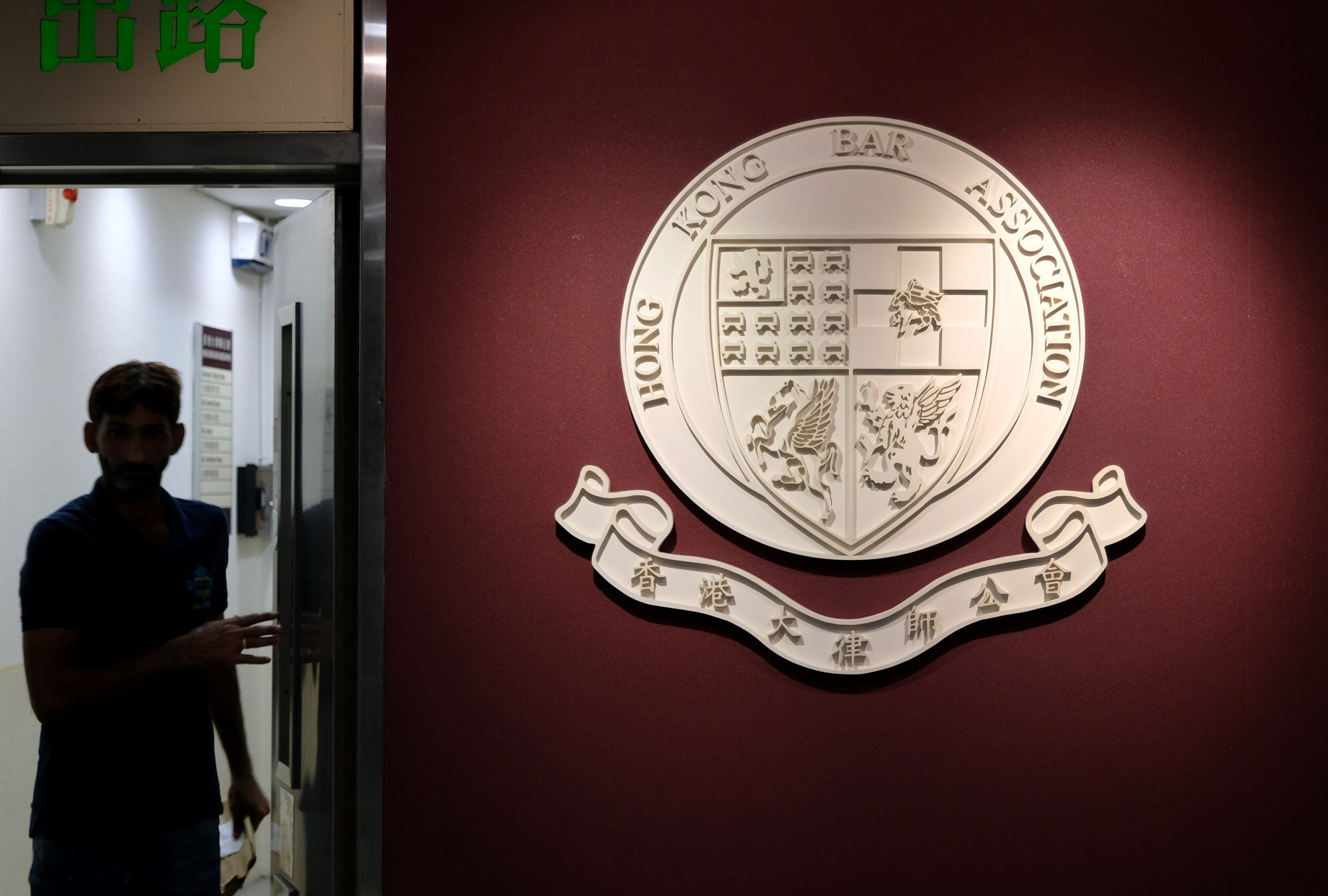
New Hong Kong Bar Association chief draws line in sand on political issues, but says body will continue to speak out on rule of law
- Commercial law specialist Victor Dawes elected unopposed as chairman; criminal lawyer Derek Chan and corporate lawyer Jose-Antonio Maurellet new vice-chairmen
- The three low-profile barristers have no history of commenting on social issues unlike leadership teams of previous years
The new chairman of Hong Kong’s Bar Association has moved to immediately draw a line in the sand on political issues, after he and two other low-profile barristers took over the leadership reins of the outspoken legal body which has been a target of pro-Beijing media.
Senior counsel Victor Dawes, a commercial law specialist who was elected unopposed to the top post on Thursday, said that while the body would continue to speak out on issues relating to the rule of law, political matters should not be its concern.
Dawes, a Hong Kong-born resident, succeeds Paul Harris SC, who has stayed out of the public eye for months after becoming a target of condemnation by pro-Beijing groups last year.

Taking on the role of vice-chairmen of the association, the professional regulatory body for the city’s 1,500 barristers, are criminal law specialist Derek Chan Ching-lung SC and commercial lawyer Jose-Antonio Maurellet SC.
The new chairman acknowledged that society had expectations of him and his colleagues to speak out on issues related to the rule of law. “We will of course do our very best,” the 44-year-old said.
But he added: “The Bar Association is a professional body. Purely political issues have nothing to do with the Bar Association, although sometimes they overlap with legal issues. That is something we have to decide accurately.”
Has Hong Kong Bar Association chairman been left with a poisoned chalice?
The changes come amid a rapid deterioration in the relationship between Beijing and the legal body, sparking fears the association could follow the fate of unions and civil rights groups that have disbanded over the past year.
Unlike his predecessor Harris, who had suggested some provisions under the Beijing-imposed national security law did not comply with rights guaranteed under the city’s mini-constitution, the Basic Law, Dawes said it was still new legislation and it should be left to the courts to decide.
He said he would focus on improving professional opportunities, adding that chances were plentiful overseas and in mainland China.
“If invited, and the Covid situation permits, we will definitely want to go to Beijing,” said Dawes, seen as the right candidate by both the pro-establishment and opposition-leaning factions in the association to ease tensions with Beijing, which stopped meeting it since 2018.
All three are strangers to the political limelight compared with the leadership teams of previous years, which were often comprised of human rights specialists and barristers who did not hold back from commenting on thorny issues, often incurring the authorities’ wrath.

The central government’s liaison office in Hong Kong labelled Harris an “anti-China politician” earlier last year, after he proposed amendments to the security law.
News also emerged that he had been a member of Britain’s Liberal Democrats party. He subsequently renounced his membership of the party.
Harris will become the first chairman – at least in recent times – to be deprived of the opportunity to deliver a speech at the city’s opening ceremony of the legal year on January 24. The judiciary had postponed the event until after the Bar Association’s leadership transition “in light of the latest health situation”.
Beijing’s top office in Hong Kong ratchets up attack on Bar Association chief
Dawes on Thursday distanced himself from Harris’ take on the security legislation but stressed he had not been approached by Beijing officials encouraging him to run.
Asked if he saw his leadership as a compromise with Beijing, he said such concepts existed only in politics. “But there is really no compromise when one talks about the rule of law,” he said.
He noted some in the community had expressed a pessimistic view on the city’s rule of law, with some declaring its death, but he and his colleagues did not agree with such opinions.
He said the Bar Association would contribute its views when the government later legislated for Article 23 of the Basic Law, a local version of the security law. He said the legislation – which was shelved in 2003 after overwhelming opposition, including from the Bar Association, was a “constitutional duty”.
Dawes, who has never commented on social issues, represented the government in prosecuting an activist from the 2014 Occupy protests in a contempt of court case.
In 2019, he acted for the Airport Authority in applying for a court order to stop anti-government protesters from occupying a terminal.
Chan, who specialises in white-collar crime, also has no history of commenting on social issues.
Maurellet, a corporate law specialist, was the association’s vice-chairman from 2017 to 2019, but kept a low profile while serving under former chairman Philip Dykes SC.

Founded in 1949, the Bar Association was on good terms with Beijing for years following the city’s return to Chinese rule in 1997. It had a tradition of sending delegates to the capital every year to meet officials and hold lectures on common law at mainland Chinese universities.
That changed dramatically after a team of vocal barristers led by Dykes, Harris’ predecessor, took over in 2018 and Beijing ended all exchanges with the body.
The legal body went on to issue statements expressing concern over the conviction of a mainland lawyer, the 2019 extradition bill that sparked mass protests, and the level of force used by police to deter demonstrators.
Although it also condemned any use of violence, including by protesters, as well as attacks on judges and the courts, it became a target of the pro-establishment camp.

